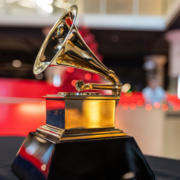Luana Bittencourt Bento, a Brazilian musician and producer based in Boston, stands out for her innovative approach that combines classic and modern techniques. Graduated in classical music and specialized in electronic music production, Luana has been gaining ground as an educator and artist, inspiring students of all ages with her creative vision. Studying at the prestigious Berklee College of Music, she establishes herself as an important figure in the Boston music scene, always supported by her husband, Mario Bento.
How has your classical music training influenced your approach to composing and performing electronic music?
My classical training gave me the foundation for my music production. Understanding music theory allows me to create cohesive, structured electronic pieces. Other thing that helps me as a producer is to be able to play different instruments. Growing up, people often told me to focus on one instrument and become an expert at it. But honestly, what makes possible be a producer and record all my tracks is that I can play and understand all the different instruments I use in my songs. This flexibility is like the backbone of my creative process, allowing me to bring my musical visions to life in a way that feels authentic to me.
What are the main inspirations you incorporate into your lessons to motivate students of different ages and skill levels?
In my opinion, the best way to learn music is to start with something the student is already familiar with. It could be a music game they’ve been playing on their phone or a song they really love. During my lessons, I always pay close attention to my students’ interests and skills. I tailor each lesson to the individual student, even if it means accommodating a challenging song request on the first day of class. I always try to adapt and find a way to make it work, even with the limited knowledge they may have at that point.
Could you share a significant moment from your musical journey that has shaped who you are as an artist today?
It’s hard to choose just one moment. Music is all I’ve ever done.
How do you balance your career as an educator and music producer with your personal life, especially with the support of your husband?
Every time I learn a new skill or do something, it becomes knowledge that I can share with others. As a musician and producer, I use my experiences to create methods and lessons that help people learn and grow. I’m always thinking: how can I teach this?
This career is full of challenges. I can’t do it all alone. I need someone who believes in me, even when I don’t believe in myself. Blessedly, my husband is that person. He believes that what I do is a gift from God. He always finds a way to motivate me, even when things seem impossible.
What techniques or skills do you believe are essential for someone looking to stand out in today’s music scene?
I don’t make the kind of music that easily stands out to a large audience. In fact, I don’t make music to sell. So that’s not my concern. That’s why I don’t have that million-dollar answer. But at the same time, I want people to listen to my music and be touched by it. What to do: Keep learning, be open to new things, believe in the message of your music and go where the audience is, which nowadays is social media, in my opinion!
How has your experience at Berklee College of Music contributed to your growth as an artist and educator?
For someone who came from another country and studied at a public university, being at one of the most renowned universities in the world seems like a dream. Especially because all the courses I have taken at Berklee College of Music, I have received scholarships, which are always based on performance. This has encouraged me to continue, and to believe that I am doing something relevant. And I’ve learned so much!
Do you have any advice for young musicians aspiring to combine tradition and innovation in their creations?
Keep learning the basics of music (music theory, harmony). Learn your instrument (or instruments) well, and stay up to date with the innovations. Technology is here to be a tool, don’t become lazy, thinking that AI can do everything. Nothing replaces the artist, the essence that only humans can put into art. But know how to use the tools to your advantage!
How do you see the role of music in building connections and promoting Brazilian culture abroad?
We Brazilians are loved and admired wherever we go. The passion and joy we put into everything we do are always highlighted. As Brazilians, we need to show this identity through our art.
Follow Luana Bittencourt Bento on Instagram





